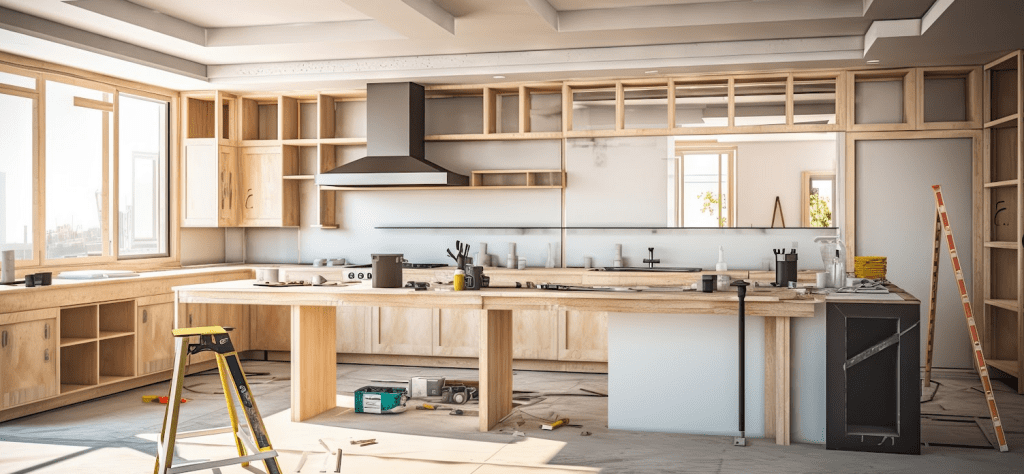Ever wondered what makes a custom home different from a regular one? It’s not just about fancy designs or bigger spaces. It’s about creating a space that’s uniquely yours, tailored to your tastes and needs.
In this article, we’ll explore these differences in detail. From design to construction, we’ll uncover what sets these two types of homes apart. Let’s dive into the world of custom versus regular homes and see which might suit you best.
- Definition Of A Custom Home
Defining a custom home is an exercise of imagination and personal preference. Unlike a typical home, a custom home is born from your unique vision. It starts with a concept that reflects your lifestyle and aesthetic choices.
From the architectural design to the selection of materials, every aspect is customized with the help of a custom home builder. This approach allows for innovative solutions to meet your specific needs, whether it’s incorporating sustainable materials, specialized layouts, or advanced home technologies. Essentially, a custom home is your living space showcasing your personal statement, shaped by your desires and crafted precisely.
- Definition Of A Regular Home
A regular home, often referred to as a production home, is the familiar face in the housing world. These homes are typically built in developments and follow predetermined designs. Think of a neighborhood where the houses have a similar look and feel, like the classic suburban cul-de-sac.
Here, customization is more about selecting finishes rather than altering layouts or architectural features. Think of a picturesque suburban street, where each home reflects a piece of the larger community puzzle, offering a sense of familiarity and comfort. Regular homes strike a balance between affordability and efficiency, making them a popular choice for many homeowners.
- Comparison Of Custom And Regular Homes
Exploring the distinctions between custom and regular homes reveals a range of differences. Let’s examine these variations in detail:
- Design And Personalization
Custom homes are defined by their ability to adapt to unique lifestyle needs and personal tastes. This might include special features like a custom-built home office, a state-of-the-art kitchen, or an eco-friendly design. Regular homes might offer some choices in finishes or minor layout changes. Generally, they conform to a set of standard designs that prioritize efficiency and broad appeal.
- Cost And Budget
The investment in a custom home often includes premium materials and the services of architects, designers, and specialized contractors. This can lead to a significantly higher price point compared to regular homes, which are typically built on a more cost-efficient, large-scale production model. The trade-off is between a higher upfront cost for a unique, personalized home and the cost-effective, standardized approach of regular homes.
- Construction Time
The timeline for building a custom home can vary greatly, depending on the complexity of the design and the availability of materials and labor. This process often involves more decision-making points, which can extend the timeline. In contrast, regular homes are generally built in a more predictable timeframe, thanks to standardized plans and processes.
- Quality And Materials
Materials and construction techniques are selected for their exceptional quality in custom homes. For instance, a custom home might feature hand-scraped hardwood floors, granite countertops, or custom cabinetry, reflecting a commitment to both aesthetics and durability.
In contrast, regular homes often use materials like pre-fabricated cabinets and standard-grade flooring. While still reliable, these choices are more about balancing quality with cost-effectiveness, adhering to the practical needs of a broader market.
- Resale Value And Market Appeal
Custom homes, with their unique features and designs, can be more challenging to value and may appeal to a smaller set of potential buyers. However, their uniqueness can also be a selling point. Regular homes, with their standard features and designs, tend to appeal to a broader market. This wider market interest often makes them more straightforward to sell, despite lacking the unique characteristics of a custom home.
The decision between a custom and a regular home involves balancing personal expression, financial investment, and practical considerations. Each type caters to different lifestyles and priorities, making the choice a highly personal one.
- Decision Factors
Several factors come into play when deciding between a custom and a regular home. It’s about balancing what you dream your home to be against practical considerations.
- Lifestyle And Needs: Your lifestyle is a huge factor. Do you crave a home that mirrors your unique style and life? Custom homes shine here. If you prefer convenience and quicker move-in times, regular homes are ideal.
- Budget: Your financial plan is crucial. Custom homes are typically more expensive, but they offer unparalleled personalization. Regular homes are more budget-friendly and still offer some customization.
- Location: Location choices can be broader with regular homes, as they are often part of larger developments. Custom homes offer more flexibility in choosing your ideal spot, but this can also mean more legwork in finding the right land.
- Timeframe: If you’re not in a hurry, a custom home allows you to build your dream at your own pace. Need a home soon? A regular home can be ready much faster.
These factors are crucial in guiding your choice between a custom and a regular home. They help you determine which type best fits your lifestyle, budget, and timeline.
Conclusion
The choice between a custom home and a regular home boils down to personal preference and practicality. Custom homes are about tailoring every aspect to your unique needs and style, offering uniqueness and quality. Regular homes, meanwhile, bring affordability, quicker build times, and a broad appeal.
Ultimately, your decision depends on what you value most in a home—be it individuality or efficiency. Each offers distinct benefits, so consider what aligns best with your lifestyle and goals.






